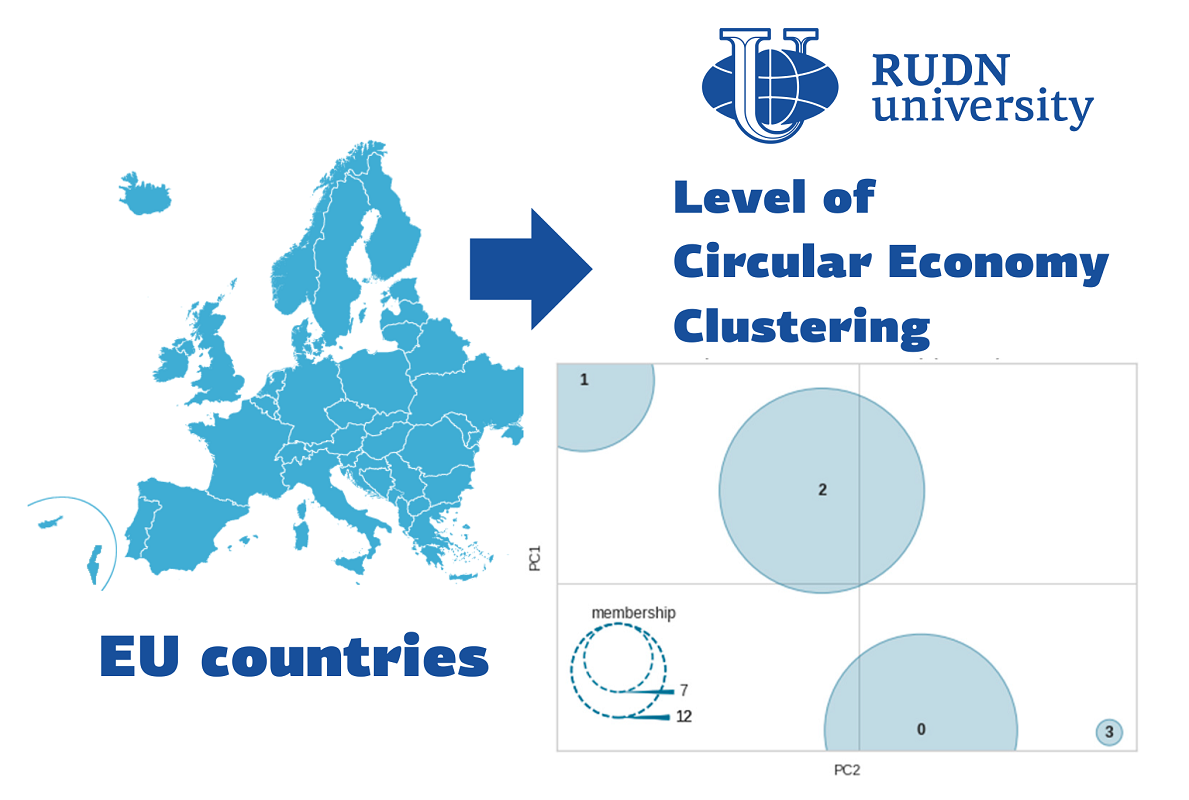RUDN University scientists have proposed a method for assessing the economy for environmental friendliness
Sustainability experts define traditional economies as linear: resources are taken from nature, goods are produced, waste from production and consumption lies in landfills or is destroyed. In contrast, a circular economy assumes that the maximum of resources consumed returns to the production cycle, and renewable energy sources are used instead of fossil fuels. According to some forecasts, by 2030, the transition to The circular economy will reduce natural resource consumption by 53% and reduce carbon dioxide emissions by 83% by 2050.
“Today, the approaches of the circular economy are being implemented by many countries of the world. But it is difficult to assess the global success of these innovations, since there is a lack of standard indicators of the ‘cyclicality’ of the economy. There are no indicators that would say: in this country, the economy has become a closed-cycle economy by 30%, and in this one by 60%. This limits both the ability to conduct international comparisons and the dissemination of successful practices,” Konstantin Gomonov, Candidate of Economic Sciences, Associate Professor of the Department of Economic and Mathematical Modeling, RUDN University.
RUDN economists have proposed a new solution to this problem: a statistical approach for assessing the development of the circular economy in different countries. To do this, they tested several clustering algorithms on the example of the countries of the European Union. Such algorithms group objects (in this case, countries) into clusters close to each other according to the selected indicator. The purpose of the study was to group countries by the effectiveness of the implementation of the circular economy.
In the calculations, RUDN economists used data from the EU monitoring system, which takes into account the volume of production and consumption, as well as waste and recycled materials. For example, they chose two statistical indicators: the volume of household garbage per capita and the total amount of waste per unit of GDP excluding waste from extractive industries. If the economy produces a minimum of non-recyclable garbage, then the resources in it are used as efficiently as possible.
The greatest efficiency for the task was shown by the method of k-means. This popular clustering algorithm is based on breaking multiple objects into a given number of clusters. At each step, they are mixed until the intracluster distances — the difference between the objects according to the selected indicator — become minimal. At the same time, only one of the tested indicators was eventually recognized by RUDN economists as suitable. Reliablely divide countries according to the level of development of the circular economy allow data on household waste per capita, while information on the total amount of garbage is often incomplete and unreliable.
The result of the work was a software module with which it is possible to classify economies and visualize theresults. The application of the algorithm to European countries made it possible to divide them into four internally homogeneous clusters. The most effective practices for introducing a circular economy, according to the conclusion of RUDN economists, are used by Belgium, Croatia, Hungary and Turkey.
“Although our study of European countries was conducted primarily to test the chosen approach, it showed a realistic picture of the introduction of a circular economy in these countries. For example, we saw that high GDP here is not a guarantee of success, ” — Konstantin Gomonov, Candidate of Economic Sciences, Associate Professor of the Department of Economic and Mathematical Modeling, RUDN University.
The results of the study are published in the journal Sustainability.
The RUDN Prize for Scientific Achievements in Chemistry for 2025, with a monetary award of 2 million rubles, was awarded to Alexander Davidovich Dilman, Deputy Director of the N.D. Zelinsky Institute of Organic Chemistry of the Russian Academy of Sciences. The researcher received the award during the celebration marking RUDN’s 66th anniversary.
Sergey Ivanov, a scholar from St. Petersburg, has been named the first winner of RUDN University’s International Prize for Scientific Achievements in Mathematics, worth 5 million rubles.
Products derived from microalgae represent a cutting-edge development in the field of bioeconomy. The potential of this biological resource was discussed at the international research seminar “Foundations for a Green Sustainable Energy”, part of the BRICS Network University’s thematic group on “Energy”. The event was organized by the Institute of Ecology at RUDN University.
